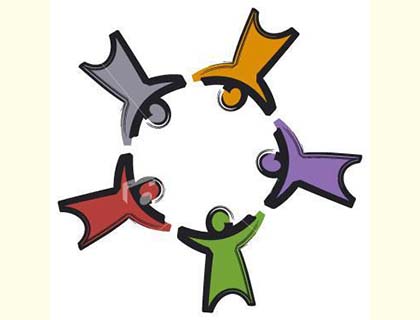Once, two friends were walking through the forest. They knew that anything dangerous can happen to them at any time in the forest. So, they promised each other that they would remain united in any case of danger.
Suddenly, they saw a large bear approaching them. One of the friends at once climbed a nearby tree. But the other one did not know how to climb. So being led by his common sense, he lay down on the ground breathless, pretending to be a dead man.
The bear came near the man lying on the ground. It smelt in his ears, and slowly left the place, because the bears do not touch the dead creatures. Now the friend on the tree came down and asked his friend on the ground, “Friend, what did the bear tell you into your ears?” The other friend replied, “The bear advised me not to believe a false friend.”
Since man is a social animal, he cannot live alone. Men of similar dispositions are naturally attracted towards each other. In course of time, intimacy grows between them and they begin to trust each other and this is called friendship.
A friend is a person that feels like family, but you are connected by feelings rather than by blood. Sometimes a friend can be closer to you than somebody from your family. We can choose our friends, but we cannot choose family. Some choose their friends in their childhood.
Just imagine your childhood. In childhood, friendships are often based on the sharing of toys, and the enjoyment received from performing activities together. These friendships are maintained through affection, sharing, and creative playtime. While sharing is difficult for children at this age, they are more likely to share with someone they consider to be a friend. As children mature, they become less individualized and more aware of others. They begin to see their friends' points of view, and enjoy playing in groups. They also experience peer rejection as they move through the middle childhood years. Establishing good friendships at a young age helps a child to be better acclimated in society later on in their life.
In a 1975 study, Bigelow and La Gaipa found that expectations for a “best friend” become increasingly complex as a child gets older. The study investigated such criteria in a sample of 480 children between the ages of six and fourteen. Their findings highlighted three stages of development in friendship expectations. In the first stage, children emphasized shared activities and the importance of geographical closeness. In the second, they emphasized sharing, loyalty and commitment. In the final stage, they increasingly desired similar attitudes, values and interests.
When we honestly ask ourselves which person in our lives means the most to us, we often find those who have chosen to share our pain and touch our wounds with a warm and tender hand and remain with us through thick and thin. We remember the friends who can sympathize with us in a moment of chagrin and anguish and who can stay with us in an hour of grief and bereavement.
It is nicely said by Henry David, “The most I can do for my friend is simply to be his friend. I have no wealth to bestow on him. If he knows that I am happy in loving him, he will want no other reward. Is not friendship divine in this?” Indeed, loyalty is the greatest value in friendship. Unfortunately, there are many who trample upon all the virtue lies in friendship and make their friendship on material basis and personal targets. So, as soon as they obtain their goal, their friendship will end. In other words, some people gather around men of power and pelf to serve their own selfish ends under the grab of friendship. They abandon their friends when their power and pelf are gone. Such selfish friends are many in our time.
It should be considered that friendship is more than a social connection. Friends are supposed to offer each other help, loyalty, protection, support, unselfish love and moral guidance. Therefore, this bond of affection should be respected and kept strong.
A good friend needs to be a person whom you can trust. He needs to be someone you can tell secrets to and trust that they will keep them under any circumstances. They need to be loyal; someone who will always stick by your side in times of need and won’t sell you out for anything; someone who will be there for the good times but also the bad times. They will make good times better and bad times easier to bear. It is very hard to gain trust; however, it is easy to lose it.
I have realized that some people are fortunate enough to meet a person with whom they share a lasting friendship. Even though, they each may follow separate paths, the thoughts, the memories and the times they have shared with each other will always remain as a treasure in their minds and hearts. Wherever you may go or whatever will happen to you, those special memories will never be forgotten. Because as much as you love your friends, your friends will reward you back the effort, the love and the care you have given to them.
People should be cautious enough about selecting friends. They had better cultivate friendship with men of character so that there may not be a split when friendship has sufficiently advanced. It would be highly bitter and painful to cut off connections later, on account of bad blood between friends. True friendship lasts forever and will not fluctuate from time to time. True friendship is a solace and a boon. Those men are fortunate who have got really true and sincere friends.

